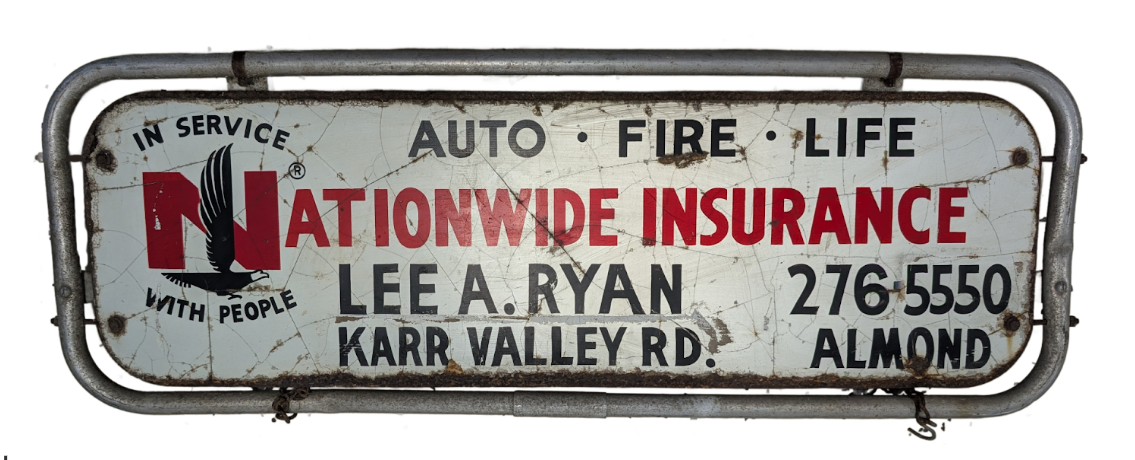-------------------------------
“Ask Jeff" is a weekly post made on the RyanAgency.com Blog.
Submit an insurance-related question to “Ask Jeff”.
-------------------------------
555-555-5555
mymail@mailservice.com
contact us today
This past week, a couple of clients inquired about the retention and storage period for their insurance documents. It's a question that isn’t asked frequently, but it's a good one!
Living in New York, you might have a stack of insurance documents—auto, homeowners, health, or life insurance policies—filed away somewhere. But how long should you keep those documents, and specifically, what papers should you hold on to?
Many would answer based on New York's Statutes of Limitations. At a high level, disputes involving insurance can be categorized into two main buckets.
So, how does this break down by type of insurance?
Auto, Home, and Umbrella Insurance: 3-6 Years
Keep records of your Auto, Home, and Umbrella policies for at least three years after the policy expires. Following a claim, especially one involving injuries, consider retaining the entire policy and any related documents for 7 years or more, as lawsuits may arise later.
Health Insurance: 3-7 Years
Health insurance disputes, such as denied claims or billing errors, typically fall under the 6-year statute of limitations. However, provider disputes may be subject to a 3-year statute of limitations (NY CPLR § 213(2)). Ongoing treatments or appeals can extend the need for records, such as Explanation of Benefits (EOBs). Hold EOBs, claims, and medical bills for 3-7 years, especially for chronic conditions.
Life Insurance: Indefinitely While Active
Life insurance payout disputes typically follow the 6-year statute of limitations from the date of the insured's death or policy lapse. Tax or estate issues may require records post-payout. Maintain active policies indefinitely; after payout, retain records for a minimum of 7 years.
Final Thoughts
Don't worry if you have not kept records in this fashion. If you have had the same agent over the specified time frames, they should have access to your documents if needed. However, reconstructing these documents becomes more challenging if you have frequently switched agents or companies. Clients of The Ryan Agency have their policy histories securely stored for many years. Please don't hesitate to reach out if you have any concerns about your policy documents.
For more guidance, check the New York Department of Financial Services (www.dfs.ny.gov) and consult a lawyer for complex cases. By keeping records for the right duration, preferably digitally, to save space, you'll stay ready for any insurance challenge.
For auto, homeowners, and umbrella insurance policies, it is advisable to keep records for at least three years after the policy expires. If you have filed a claim, particularly one involving injuries, you should consider retaining the entire policy and all associated documentation for seven years or longer. This extended period accounts for the possibility of lawsuits arising after the initial incident.
Health insurance disputes, including denied claims and billing errors, are generally subject to the six-year statute of limitations for contractual claims. However, disputes with healthcare providers might fall under a three-year limit. Due to ongoing treatments or appeals, it's prudent to hold onto Explanation of Benefits (EOBs), claims, and medical bills for 3 to 7 years, especially for chronic medical conditions where a longer history of records may be beneficial.
While a life insurance policy is active, you should maintain those records indefinitely. After a policy payout or lapse, the statute of limitations for payout disputes is typically six years from the date of the insured's death or the policy lapse. Additionally, potential tax or estate issues might necessitate keeping records beyond the payout. Therefore, it's recommended to retain life insurance policy records for a minimum of seven years after the policy payout.
While it's best to adhere to these retention periods, don't be overly concerned if you haven't. If you have maintained a consistent relationship with the same insurance agent over the relevant timeframes, they may have access to your past policy documents. However, it can become more difficult to reconstruct records if you have frequently switched agents or insurance companies.
Maintaining your insurance records digitally is a practical way to save physical space and ensure their accessibility. Consider scanning important documents and storing them securely on a computer or in a cloud-based storage service. This can also make it easier to locate specific documents when needed.
For more comprehensive information and guidance on insurance regulations in New York State, you can consult the official website of the New York Department of Financial Services (www.dfs.ny.gov). This resource can provide further details on your rights and responsibilities as an insured individual.
You should consider consulting with a lawyer if you are facing complex insurance disputes, if you are unsure about your rights or obligations in a specific situation, or if the potential financial implications of an insurance matter are significant. Legal counsel can provide tailored advice based on the specifics of your case and help you navigate the relevant legal processes.
convert_to_textConvert to source
The content in this article, including the podcast and FAQ, was created by the staff at The Ryan Agency, with portions generated using artificial intelligence. This information is for general informational purposes only and should not be relied upon as professional advice. For guidance specific to your situation, please consult your policy documents and an insurance professional. The Ryan Agency, Jeff Ryan, and our staff expressly disclaim any liability for actions taken or not taken based on this content without consulting your policy or an insurance professional.
About the Author: Jeff Ryan has been a licensed insurance agent since 1978, later becoming a full-time insurance professional in 1983. Since then, he has been the principal of The Ryan Agencies with offices in Hornell, Jasper, and Wellsville. The agencies serve approximately 15,000 clients in New York and Pennsylvania. Jeff holds numerous credentials including the Chartered Property & Casualty Underwriter (CPCU), Certified Insurance Counselor (CIC), Accredited Advisor in Insurance (AAI), Chartered Life Underwriter (CLU), and Chartered Financial Consultant (ChFC) designations. He holds a Master's Degree from the American College. Jeff enjoys writing about all things insurance and welcomes your questions and feedback.

-------------------------------
“Ask Jeff" is a weekly post made on the RyanAgency.com Blog.
Submit an insurance-related question to “Ask Jeff”.
-------------------------------

This article may have been originally published at Quora.com.
To see Jeff's Quora.com profile click here.




Service@RyanAgency.com
Hornell: 607-324-7500
Jasper: 607-792-3800
Wellsville: 585-593-4244